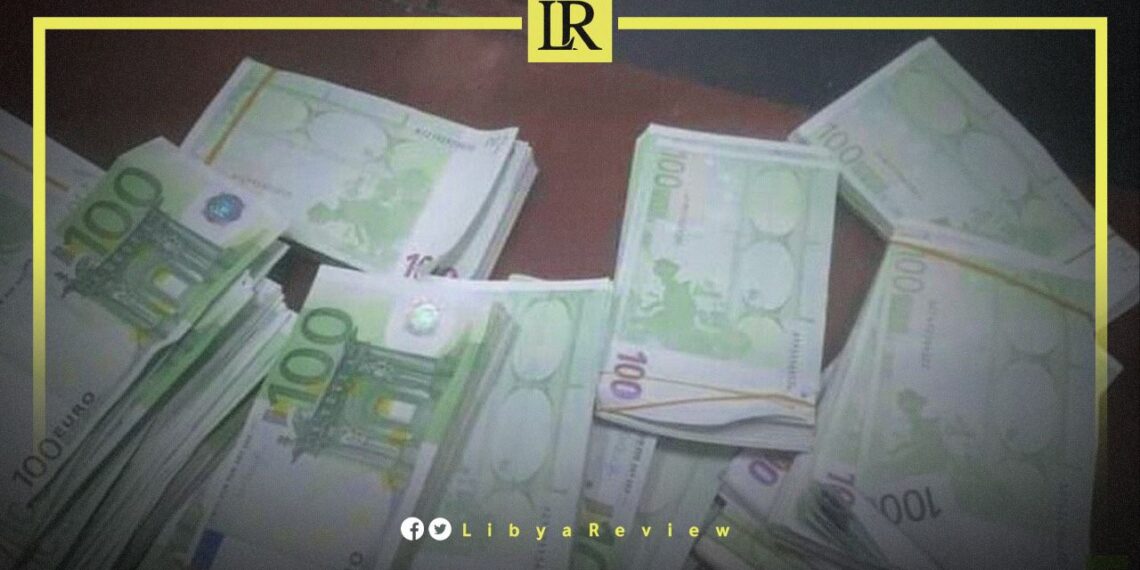The year 2024 painted a grim picture of Libya’s governance, with rampant corruption and unchecked financial mismanagement defining the actions of the Government of National Unity (GNU).
Despite its expired mandate, the GNU presided over vast expenditures shrouded in opacity, triggering widespread allegations of misconduct.
The annual report by Libya’s Audit Bureau offered a damning account of the scale of financial irregularities, exposing systemic corruption and the misuse of public funds that continues to cripple the nation.
One of the most controversial revelations was tied to the oil-for-fuel barter system. This arrangement, which began in 2018 to address Libya’s rising fuel consumption and electricity demands, cost the state over 41 billion LYD in 2024 alone.
Alarmingly, these transactions were not recorded in the Ministry of Finance’s accounts, leaving critical gaps in the country’s financial records. The lack of transparency surrounding the barter system has raised serious concerns about the ultimate destination of these funds.
Operating without adequate oversight from the National Oil Corporation or the Ministry of Oil, this mechanism has become a breeding ground for corruption, siphoning billions away from the public purse.
The Audit Bureau’s findings also shed light on the government’s reckless and often unjustifiable spending. Extravagant expenditures included prolonged hotel stays costing 316,000 LYD for unidentified individuals, as well as 177,000 LYD for luxury accommodations for a deputy prime minister and his delegation in Tunisia, Qatar, and Saudi Arabia.
During Ramadan, the Prime Minister’s Office reportedly spent 717,000 LYD on catering services, while 665,000 LYD was allocated to organizing a religious event in Tripoli. Other questionable expenses included 289,000 LYD for a private flight for a business delegation, 426,000 LYD for scout equipment, and 1 million LYD for a media fund. These figures paint a picture of a government more focused on self-enrichment than on addressing Libya’s pressing needs.
The financial mismanagement is reflected in the country’s deteriorating budgetary health. The budget surplus, which stood at 6.28 billion LYD in 2022, fell dramatically to just 1.08 billion LYD in 2023. While revenues saw a slight decline from 176.86 billion LYD to 175.08 billion LYD, expenditures rose significantly, further straining the economy. This trend underscores the GNU’s inability to rein in spending or prioritize fiscal discipline.
Meanwhile, the Administrative Control Authority’s report for 2024 further highlighted the depth of Libya’s governance crisis. It documented 470 cases of financial and administrative violations, referring 450 cases to the judiciary. Over 1,200 individuals were implicated in these cases, with charges ranging from embezzlement to contract fraud.
The report also criticised the widespread use of direct-award contracting, a practice that bypasses competitive bidding and fosters corruption.
Adding to the chaos, the Attorney General’s Office intensified its crackdown on corruption in 2024. Key investigations uncovered the misappropriation of 119 million LYD at Sahara Bank’s Mayah branch, with senior officials implicated in forging financial records and diverting funds to personal accounts. Another case revealed the misuse of foreign currency allocations, amounting to 3.09 million LYD, through manipulated family card systems.
High-ranking officials from the medical supply sector and municipal administrations were also charged with diverting funds meant for essential public services, including the procurement of medical supplies.
These revelations offer just a glimpse into the scale of corruption plaguing Libya.
The misuse of oil revenues, the absence of financial accountability, and the blatant exploitation of public funds have left the country in a dire state. Corruption has not only drained billions from Libya’s coffers but has also deepened its economic instability, eroded public trust in institutions, and undermined efforts to rebuild the nation.
Addressing this crisis requires immediate and systemic reforms. Transparency in public spending, stronger oversight mechanisms, and robust anti-corruption measures are essential to curb the rot. However, achieving these goals hinges on resolving Libya’s political instability, as a divided and fractured governance structure only exacerbates the challenges. Without a unified and accountable government, Libya risks remaining mired in corruption, with little hope of recovery


